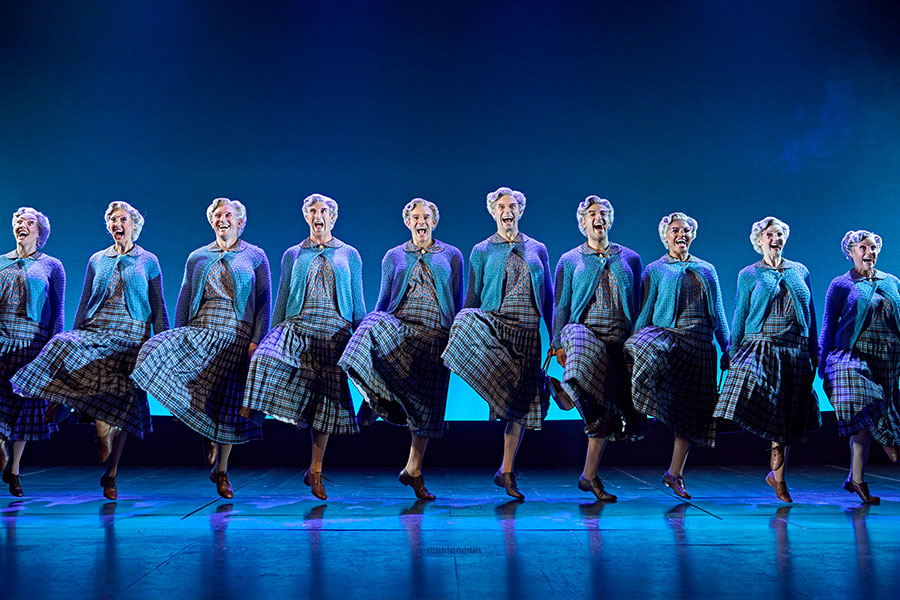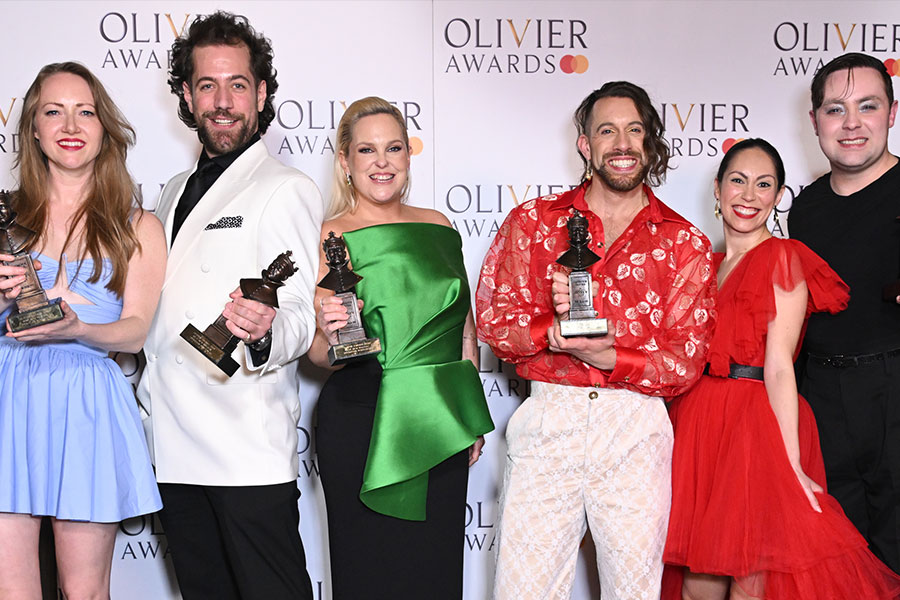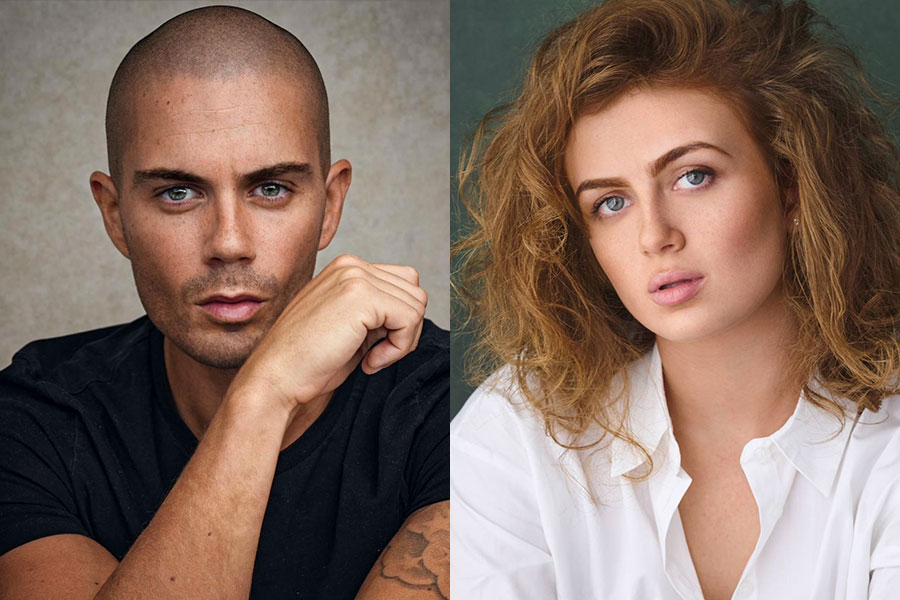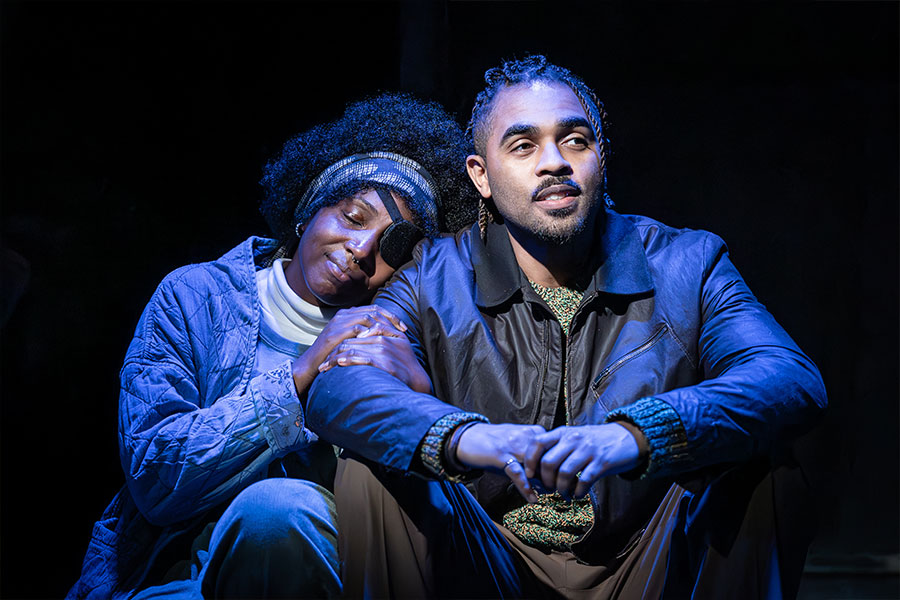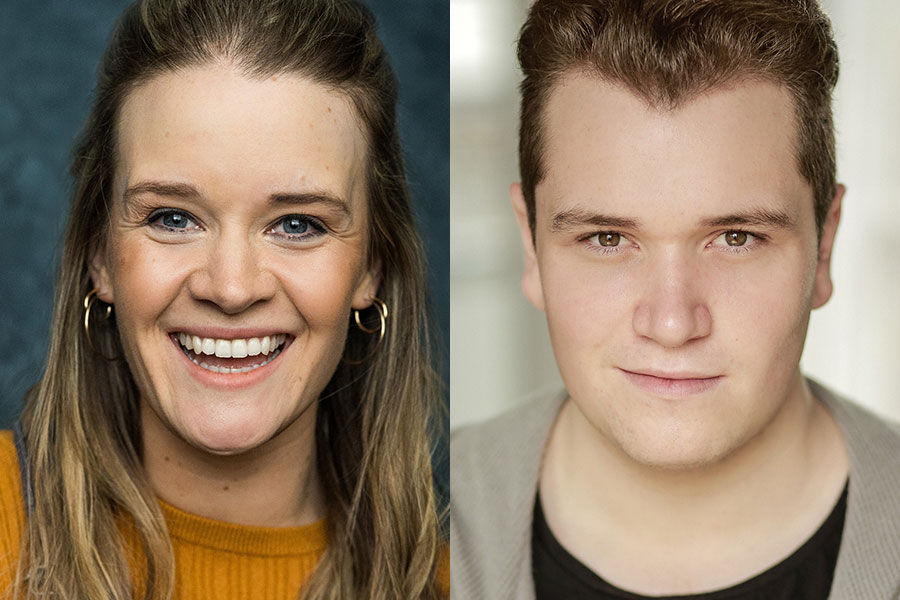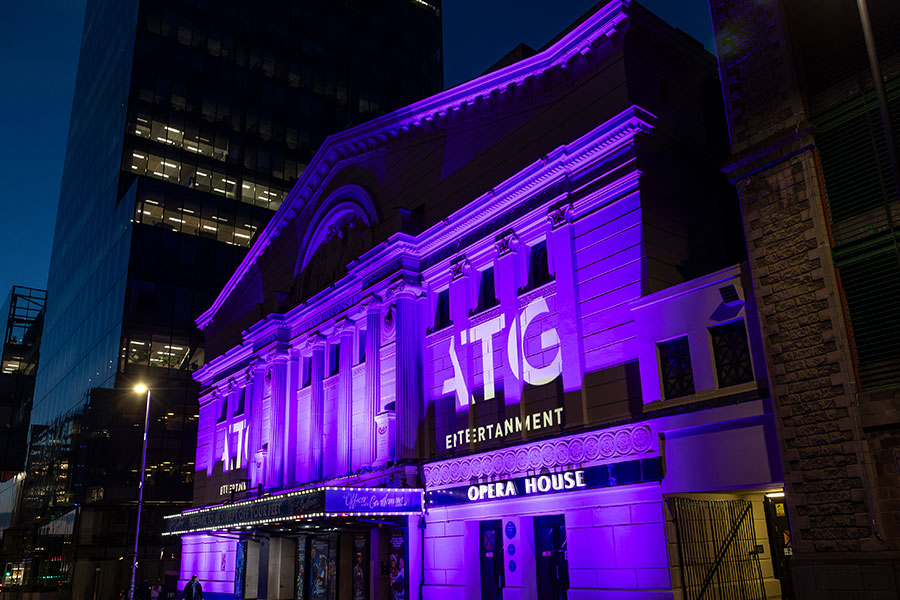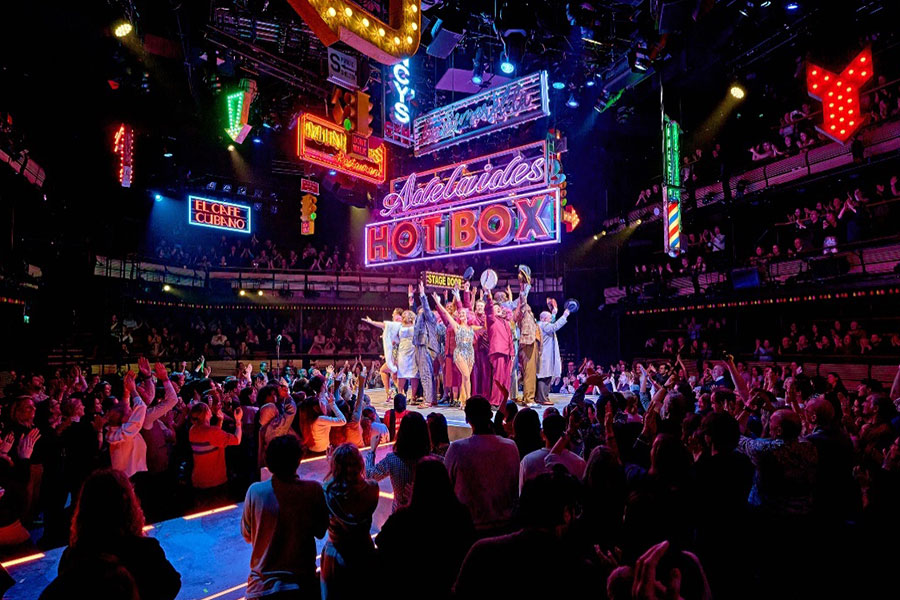20 Questions With…Roy Williams
Writer Roy Williams is a busy man. He’s currently commissioned to write new plays for the National, the Tricycle, the Royal Court, Polka Children’s Theatre and Nottingham Playhouse. And that’s in addition to developing one of his plays as a feature film and working on a two-part BBC television drama starring Lenny Henry.
Williams’ first success came after graduating from Rose Bruford College when Theatre Royal Stratford East produced his play The No-Boys Cricket Club. Several community and young people’s plays ensued with Night and Day, Josie’s Boys and Rise.
But it was in 1999 that Williams really grabbed the public’s attention by winning three major awards: the 31st John Whiting Award and the EMMA Award for Best Play for Starstruck and the George Devine Award for Lift Off. These were followed by The Gift, Local Boy and Clubland which, in 2001, won Williams the Evening Standard Award for Most Promising Playwright.
This year Williams added to his trophy shelf with the South Bank Show / Arts Council England Decibel Award, recognising work that contributes to the development and promotion of the black and Asian arts sector, or an artist whose ethnicity directly influences their work. This was for Fallout, premiered last year at the Royal Court, which was also nominated for Best Play in the Evening Standard and Whatsonstage.com Theatregoers’ Choice Awards.
Williams’ work for television includes Offside, winner of BAFTA Children’s Film and Television Award for Best School’s Writer, and for radio, Tell Tale, Homeboys and Westway.
Among Williams’ forthcoming commissions is a piece for the Eclipse theatre project which was inspired by the findings of the Eclipse report, issued after the June 2001 conference held in Nottingham to develop strategies for combating racism in theatre.
Sing Yer Heart Out for the Lads, first produced as part of the National Theatre’s 2002 Transformation season, has just returned to the National’s Cottesloe Theatre in a new production for a two-month run.
Date & place of birth
I was born in Fulham, southwest London on 5 January 1968.
Lives now in…
In Notting Hill, west London.
Training
I was at Rose Bruford College where I did the three-year writers’ course.
First big break
That was when the Theatre Royal Stratford East produced my unsolicited play, The No-Boys Cricket Club, on their main stage in 1996. It was great.
Career highlights to date
When I won the Evening Standard Most Promising Playwright Award for Clubland in 2001. And seeing my name in lights outside the Royal Court when Fallout was on last year, that was pretty special.
You’ve won many awards for your writing. How important are these?
They mean a lot to me because they help to validate what you are doing. It’s like someone saying you’re doing good work and your instincts are right. It raises your profile, which leads to more commissions and more work. Awards are good, but getting offers of work, that’s the most important thing.
Favourite actors
There are loads, but one of my very favourites is Lennie James who was in Fallout. Not only is he a terrific actor, but he’s a wonderful human being, and a talented writer himself. When Lennie talks, people listen. I have nothing but respect and admiration for that man.
Favourite playwrights
There are so many, so I’m just going to say one: Barrie Keith who wrote a play called Barbarians. If he hadn’t written that play, I wouldn’t be a playwright. You see, I read it when I was at school, and I saw myself and my friends in his work. It was about us and it was amazing. I saw a fringe version of Barbarians years ago. That wasn’t a very good production, but it was great to see it on stage. More currently, David Eldridge. Both our first plays opened at the same time in 1996. I went to see Serving It Up, and he came to see The No-Boys Cricket Club and we became friends. I like David’s work a lot. I saw his adaptation of Festen the other week and was blown away by it. Compelling stuff.
Favourite directors
I’ve been lucky to work with directors like Simon Usher, Ian Rickson and Indhu Rubasingham, who I’ve worked with the most – she’s directed four of my plays. I’m currently enjoying working with Paul Miller. Looking ahead, Rufus Norris, Paulette Randall and Edward Hall are all on my wish list now.
What play by someone else would you most like to have written?
There’s an American play called Yellowman by Dael Orlandersmith, and I was lucky enough to see it in New York two years ago. When I left the theatre, I was jealous. It made me want to run home and start writing. It’s a blinding play, beautifully written. Indhu is directing it in Liverpool, then it’s coming to the Hampstead Theatre. I’m really looking forward to seeing it again.
If you were an actor, what role would you most like to play?
That’s the hardest one of all these questions. I’ve always liked the character of Mercutio, from Romeo and Juliet. I can’t remember the actor’s name, but the guy who played it in Baz Lurhmann‘s film version was great. If I did it, I’d like to play it like that.
What’s the best thing you’ve seen on stage recently?
The Pillowman by Martin McDonagh. It was so clever and well written. I loved every second of it and thought it thoroughly deserved to win the Olivier for Best New Play.
What would you advise the government to secure the future of theatre?
More money and more exposure for young people’s theatre. Young people’s companies do all the legwork by taking productions to schools and bringing theatre to a new generation, but they get little reward. I used to work for a company called Theatre Centre, who’ve been going for over 50 years. They do quality work, but still most people I mention them to have never heard of them. That’s sad and shocking.
If you could swap places with someone (living or dead) for a day, who would it be?
Don’t laugh, but George Bush, so I could go on live TV and reverse every decision he’s made as president.
Favourite book
At the moment, it’s a book called Holes by Louis Sachar. I’m not normally a very good book reader, but this grabbed me from start. It’s about a kid in boot camp, who’s made to dig holes, but he doesn’t know what for. It’s a very clever book with a great twist. I think a film version was released before Christmas but I haven’t seen it.
Favourite holiday destination
New York. I love the theatre world there, and the bars don’t all close at 11.00pm.
Favourite after-show haunt
The nearest bar really. I used to go to the Phoenix on Tottenham Court Road quite often.
Favourite website
At the moment, it’s Friends Reunited because, thanks to them, I recently made contact with a friend who I haven’t seen for 20 years.
What made you want to write for the stage as opposed to film, TV, novels, etc?
Because I think it’s still the best. It’s powerful, exciting and inspiring on its day, and theatre is too good to be reserved for the white middle classes. The best way to express yourself is on stage, and that should be for everyone.
You’ve won awards for your children’s writing. What’s the difference between writing a play for an audience of kids versus adults?
I try not to make to differentiate too much – I always write what I’m passionate about. But, of course, there are restrictions. You have to figure out how much you can get away with in terms of language and there are limitations like budget and how many actors you can have. But you can work round that.
Do you think there’s enough drama – on stage or screen – that caters for black audiences?
There can always be more drama to cater for a black audience. Everybody needs to work harder to avoid a stage and screen that only reflects the middle classes. I’m not looking for a cosy world – let’s see it in all its complexity. I’m not saying I support integrated casting in every case. Obviously, some plays dictate which actors are used and we should stick to that, but we should be making an effort to see more diversity in the work in general.
Sing Yer Heart Out for the Lads was previously produced at the National during the 2002 Transformation season. How did a second production come about?
From the moment the play opened at the Lyttelton Loft, there was a real buzz and, as it did so well, there was talk of it coming back. Nothing came of it and I didn’t think about it for ages. Then I had a big surprise when (NT artistic director) Nicholas Hytner called me last year to tell me he wanted to programme it again. I was thrilled.
How, if at all, does this production differ from the original?
There’s a new director, a new cast, a new set and a bigger space. In fact, everything’s bigger. Telling the same story in a bigger space is a real challenge, but the rehearsals I’ve seen are going really well. The Cottesloe has always been my favourite theatre, so I’m delighted it’s on there.
What’s your favourite line from Sing Yer Heart Out for the Lads?
It’s when Jimmy says: “Kevin Keegan is a fucking muppet. Have you seen his line up? Tosser.” I don’t know why I like it, but whenever Gawn Grainger says it, it cracks me up.
How have your personal & family experiences influenced your writing? What else provides you with inspiration?
When I was a kid, I listened to my Mum’s stories about her life growing up in Jamaica, and a lot of my earlier plays are based on that. But now I get inspiration from what happens around me, what I see on the news or read in the paper. I wrote Fallout in response to my anger over what happened to Damilola Taylor.
What can you tell us about your next play?
I’ve got loads on at the moment. The main thing is for the Eclipse project next spring. It opens at New Wolsey Theatre in Ipswich and is then going on tour. The story for that is from same world as Fallout, but as seen through the eyes of a young brother and sister – that’s all I can say. I’m gathering a lot of research for my next Royal Court play, too, which is about the world of boxing.
– Roy Williams was speaking to Hannah Kennedy
Sing Yer Heart Out for the Lads opened on 30 April 2004 (previews from 23 April) at the NT Cottesloe, where it continues in repertory, until 26 June 2004.




